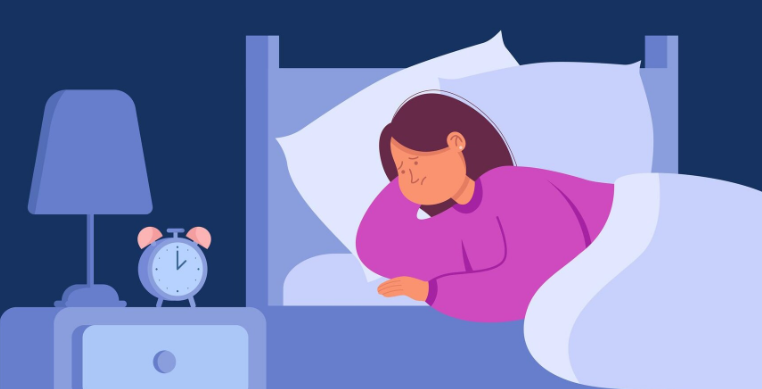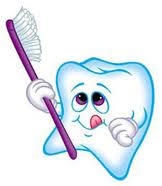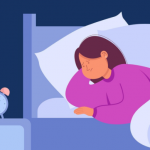Prefer to listen? Check out my podcast here:
As blogged long ago, there has been a dramatic rise in the prevalence of sleep deprivation over the last 60 years or so. While it seems to be lauded by some to be able to get by with less sleep, the negative impact of insufficient sleep on metabolic health is largely underappreciated. Consider this: even just a single night of sleep deprivation increases insulin resistance in healthy people, meaning that the pancreas has to work harder to control blood sugar. Sleep deprivation is also strongly linked to obesity. So what is going on here? Just how does insufficient sleep drive metabolic disease and weight gain?
When our sleep is disrupted, it messes up the production and/or circadian rhythm of many of our hormones. Sleep deprivation may increase cortisol levels, which drives insulin resistance and can raise blood sugars in people with prediabetes or diabetes. Poor sleep also causes disruption of the normal circadian (day/night) rhythm of cortisol release. Sleep disruption is associated with increased activity of the sympathetic nervous system (think: adrenaline), which makes us feel stressed, drives blood pressure up, and drives blood sugar up as well. Disruption of sleep and the circadian rhythm increases inflammatory hormones and chemicals that breed insulin resistance and other disease processes.
When we have insufficient sleep, our hunger and fullness hormones are affected, including leptin (one of our fullness hormones) which is lowered, and ghrelin (a hunger hormone) which is higher. An increase in cortisol production may play a role as well. We also have less emotional reserve when we are tired, and emotional eating can become more difficult to manage. When we are awake more hours in a day, we also tend to eat more, AND, we also tend to look for highly palatable, high-calorie, high sugar foods in order to stay awake when we are tired (which can also drive blood sugars up in people with prediabetes or diabetes). On top of that, we tend to burn less energy and be less active when we are tired. With weight gain, we can then begin to layer in a higher risk of obstructive sleep apnea, which furthers disrupt sleep and causes a vicious cycle with subsequent weight gain, further disruption of sleep, and further exacerbation of cardiometabolic disease.
For people with type 2 diabetes or type 1 diabetes, insufficient sleep impairs blood sugar control. Having diabetes can also in turn impair sleep – for example, having low blood sugars at night causes awakening (a good thing, as any low blood sugar needs to be treated right away); if sugars are really high, this can cause increased urination during the day and night.
If you are having trouble sleeping, check out my previous blog on good sleep hygiene tips. Talk to your doctor about factors that could be impairing sleep, including some medications, unmanaged pain, and/or any mental health concerns that may be contributing. Treatments to help with sleep exist, including cognitive behavioral therapy. In some cases, medications to aid with sleep can help.
Check me out on X/twitter! @drsuepedersen
Share this blog post using your favorite social media link below!
www.drsue.ca © 2024












